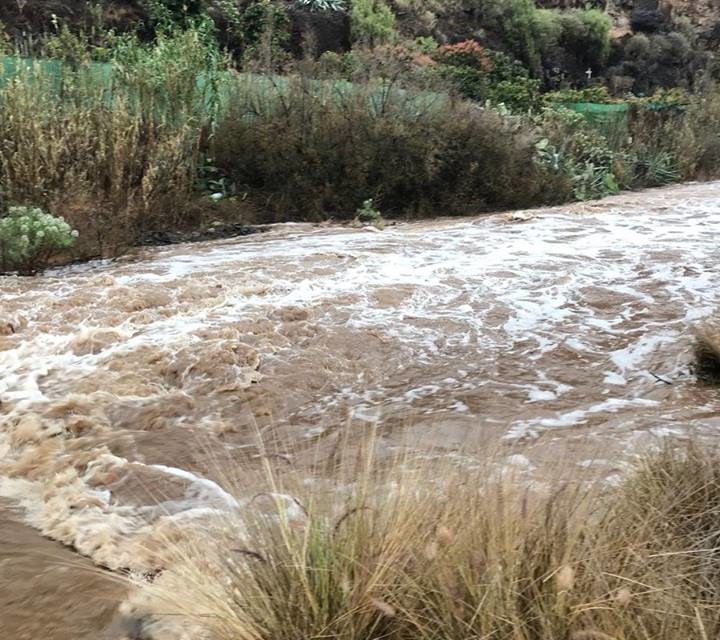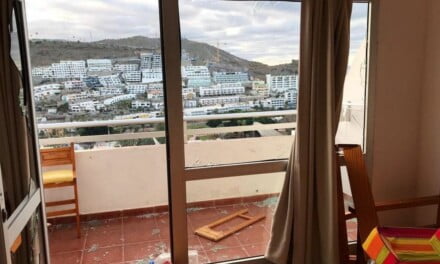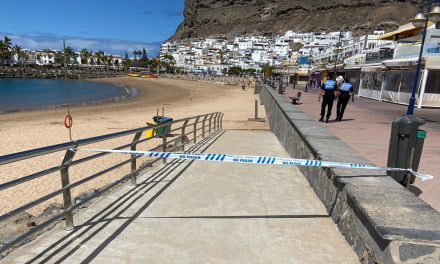Heavy rains forecast this weekend in the Canary Islands have led the regional government to remind everyone that the situation can change rapidly when a storm like this affects the weather systems of the archipelago. Stay at home and drive with extreme caution are just some of the advice that the Government of the Canary Islands urge in situations like the one that is coming.
 With sudden downpours like this barrancos and ravines can fill quickly and turn into fast moving rivers. Be very careful. Landslides are a real danger. Coastal areas can be unpredictable. Use common sense and check on those around you, particularly older neighbours and those who may live alone.
With sudden downpours like this barrancos and ravines can fill quickly and turn into fast moving rivers. Be very careful. Landslides are a real danger. Coastal areas can be unpredictable. Use common sense and check on those around you, particularly older neighbours and those who may live alone.
With luck most of this advice will not be necessary, but in an emergency you may not be able to count on the emergency services to get to you quickly, so listen to the advice, stay safe and look out for yourselves and each other.
All citizens are reminded:
1- It is necessary to check the state of the roofs, drains, etc. If you live near a ravine, inform your City Council if it is saturated with waste, rubble, etc.
2- Given the imminent arrival of heavy rains, be attentive to the instructions given through the media.
3- Never camp in flood-prone places: ravine beds, etc.
4- If possible, stay in your home, so long as it is not located in a ravine or a places of risk.
5- Avoid driving your car during heavy rains, if necessary, take extreme precautions, paying special attention to the height of the water, moderate your speed and watch your brakes. If your vehicle begins to fill with water, it is best to abandon it.
6- Drive preferably on main roads or highways, avoid forest tracks or smaller secondary roads and use the lowest gears.
7- In case you have to cross through flooded areas where the water has a current, tie a rope around your waist, attaching the other end to some fixed or heavy object.
8- Do not cross over bridges that are overflowing with water.
9- If a problem surprises you at home, prevent toxic and/or flammable substances from coming into contact with the water.
10- Do not enter the areas of the house that could flood, such as garages, basements, etc.
11- Never use the elevator, the electrical current can fail at any time.
12- Disconnect the electrical current.
13- If a situation arises, do not hesitate to leave the house, and move to a higher place, or to where the authorities are directing residents.
14- If water isolates you in the upper part of your house, do not try to leave it by swimming, the current can drag you, it is preferable to wait for help.
15- Do not overestimate your possibilities, be prudent, and if necessary, wait for specialised help.
16- Once the emergency is over, do not return to your home until the technicians tell you that it is safe to do so.
17- Once the houses can be accessed, do not light matches or devices that give off any spark, including the light switch.
18- Drink only bottled water.
19- Call 1-1-2 exclusively in an emergency. If you need any information, use 012 and not 1-1-2.














